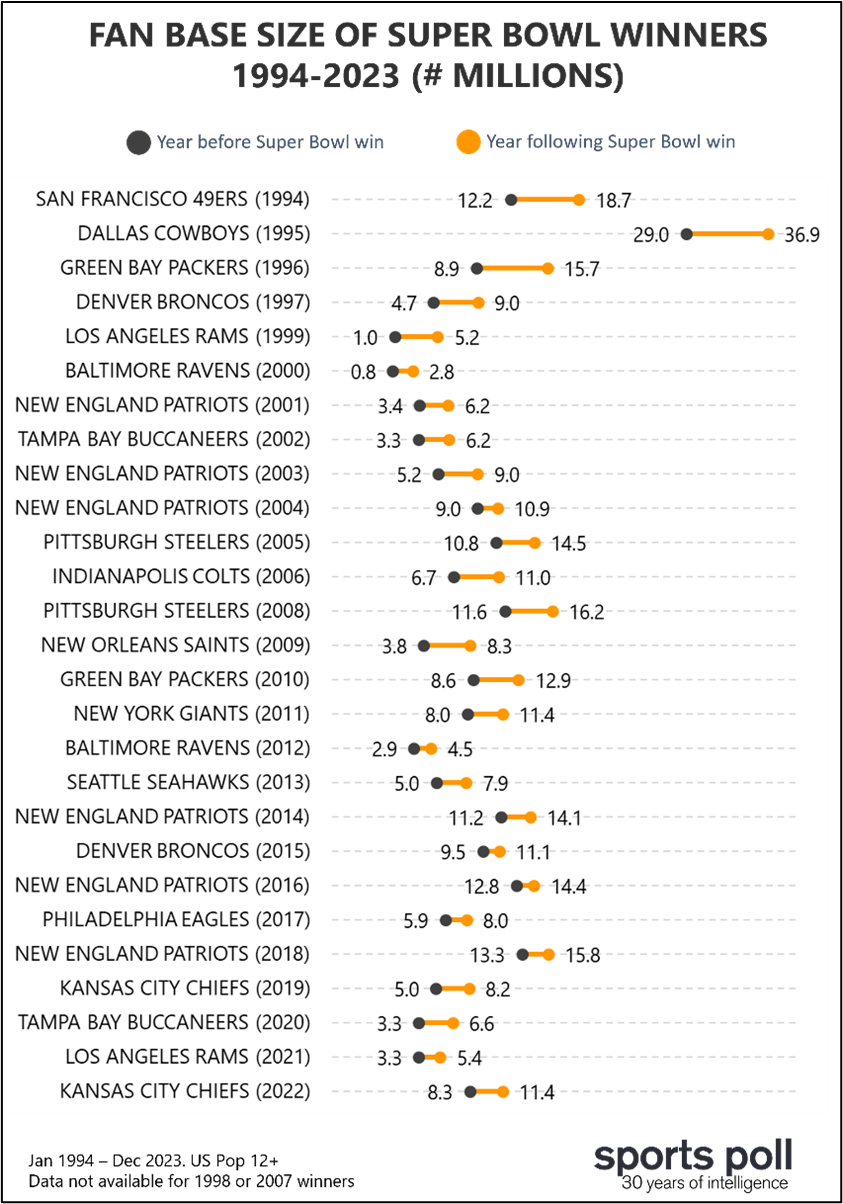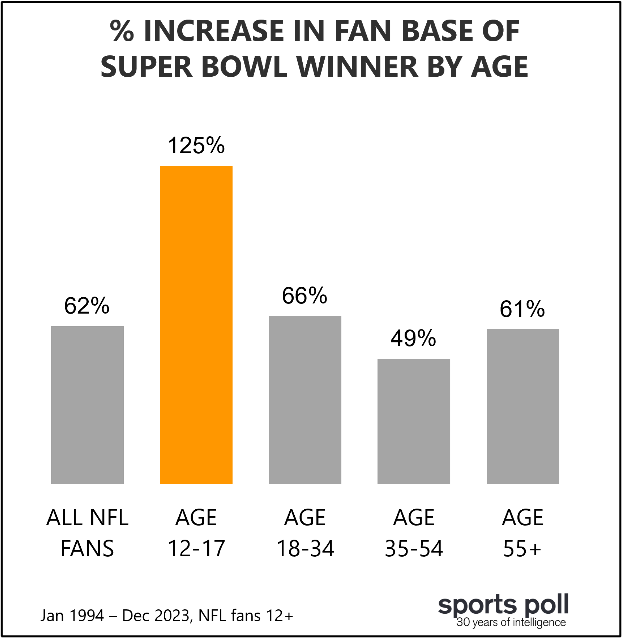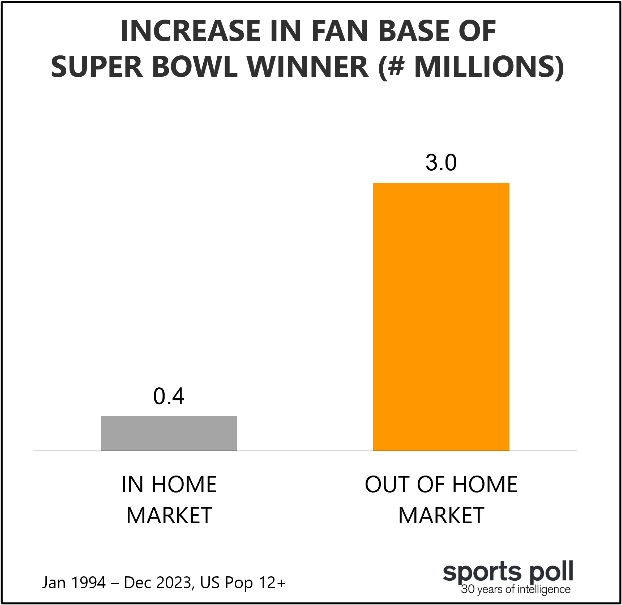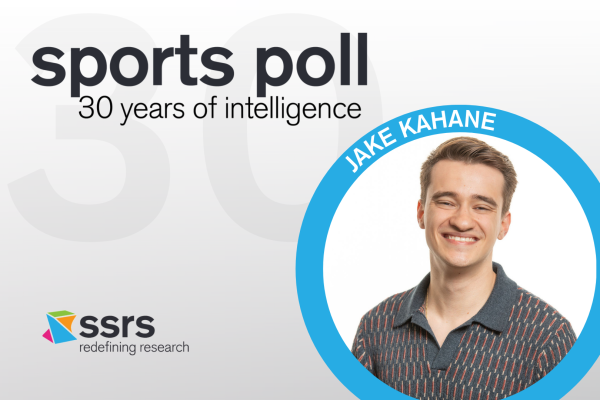2024 marks the 30th anniversary of Sports Poll. To celebrate, we will be highlighting some of our most important findings over the course of the year. First up, we use 30 years of data to look at how a Super Bowl win can build a team’s fan base for the future.
The first sporting event I remember watching was Super Bowl XXII. Even without looking, I can tell you that the team now known as the Washington Commanders scored 35 points in the second quarter, they beat the Broncos 42-10, and Doug Williams was named MVP. I come from a long line of Washington fans, but it wasn’t a given that I’d become a fan myself. We lived in Texas at the time, and I had zero interest in sports.
That game happened at just the right age for me (I was 8 years old). I also got to watch it with my family. It didn’t hurt that Washington pulled off a huge upset either. By the start of the next season, half of my wardrobe was Washington gear, and my grandparents were mailing VHS tapes of their games to us since we didn’t get them on TV.
I may be a more extreme case, but I’m not the only person who has connected with a team because of the Super Bowl. Our Sports Poll data shows that, across sports, nothing is more consistently impactful for a team’s fan base than winning a Super Bowl. Granted, that’s an extremely high bar to set since there are thousands of pro and college teams in the US, and only one wins the Super Bowl every year. The Super Bowl does provide a great case study that demonstrates how success can ignite future generations of fans and expand a team’s fan base beyond its home area. Teams that do more to build stronger connections during the best times will be better protected during the inevitable bad times.
Here is what our data shows:
Since 1994, the average Super Bowl winner increased their fan base by 3 million fans the next year

Highlights:
- The 1995 Dallas Cowboys were the largest gainer (in millions) with 7.7 million more fans in 1996. (Note that “fans” refer to those who name the team as their favorite in the sport.)
- The 2000 Baltimore Ravens were the larger gainer by percentage. They increased their fan base by 231% the next year.
- Over the past 30 years, every team that has won increased their fan base the following year.
Takeaway:
- Fans feel the greatest sense of “belonging” to their team and the larger fan community when a team is the most successful. Success provides the greatest opportunity for teams to build a foundation with their fans. It’s up to the teams to strengthen those bonds during the honeymoon to ensure fans will continue to support them during the bad times.
A Super Bowl win increases a team’s youth fan base by 2X as much as adults

Highlight:
- Since 1994, the average Super Bowl winner increased their total fan base by 62% the following year. Super Bowl winners have increased their teen fan bases by 125%.
Takeaway:
- Kids’ fandom is more malleable because they haven’t established a lifelong bond to a team yet. They’re easily attracted to the shiniest object, especially successful teams who are on TV more often and typically have the marquee players. The “bandwagon” effect provides an easy entry point for young fans, but it only matters if the team converts that initial interest into a lifelong connection.
Super Bowl winners increase their out-of-market fan base 10X more than their local fan base

Highlight:
- Since 1994, the average Super Bowl winner increased their local fan base by 0.4 million fans and their out-of-market fan base by 3.0 million.
Takeaway:
- It’s easier than ever for a fan to follow a team no matter where the team is located. Out-of-market (or what we call “displaced”) fans typically don’t engage the same way as local fans though. They can’t easily attend, may not be able to watch games, and may not know other fans. Teams need to develop unique strategies to make their displaced fans feel a sense of belonging without those local connections. They are at a higher risk of jumping to another team when performance begins to decline.









